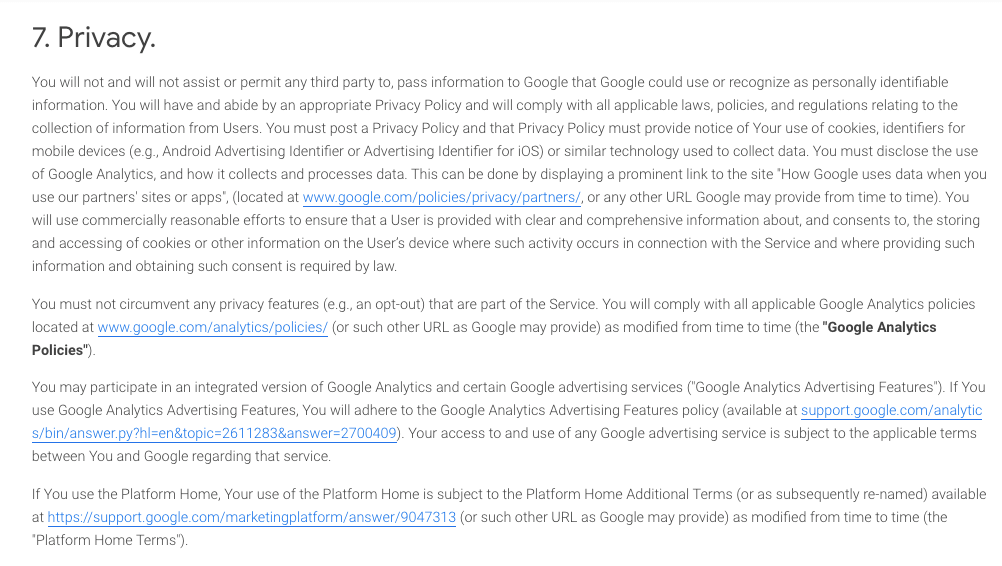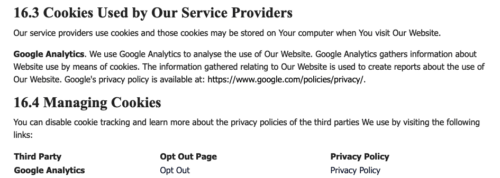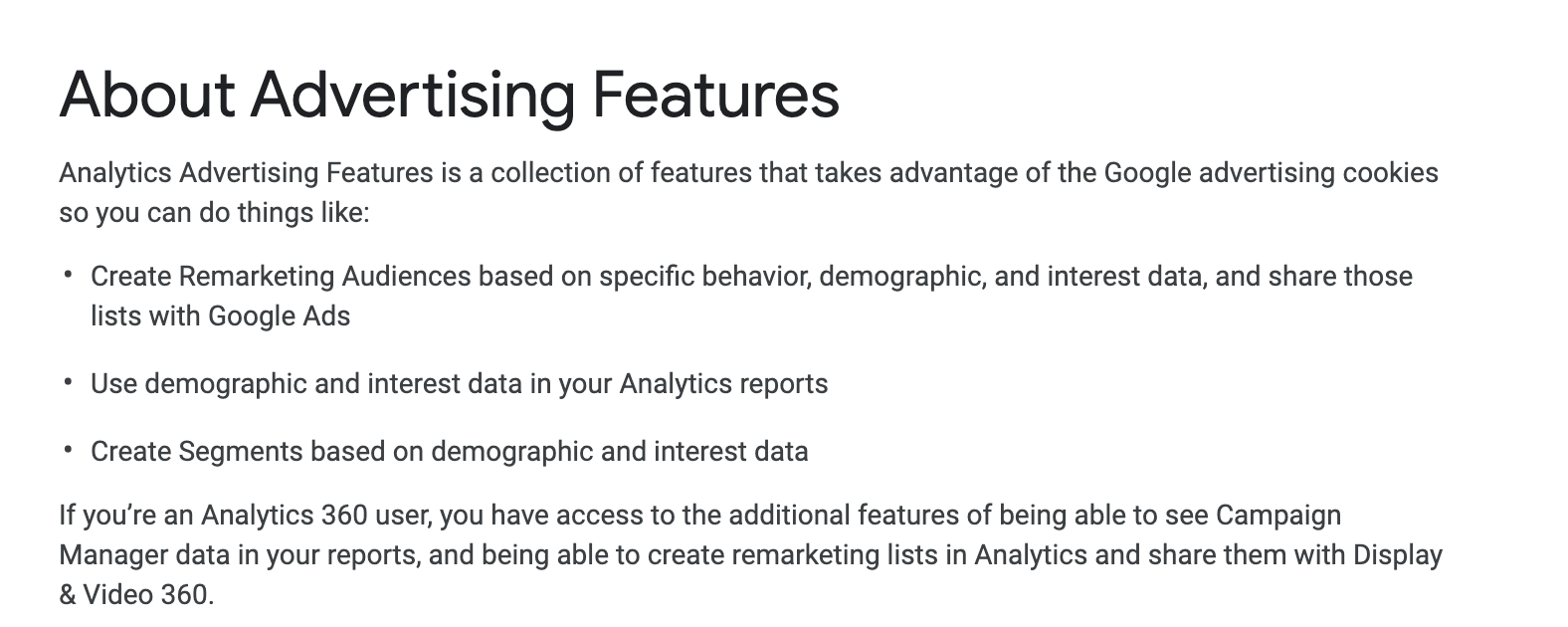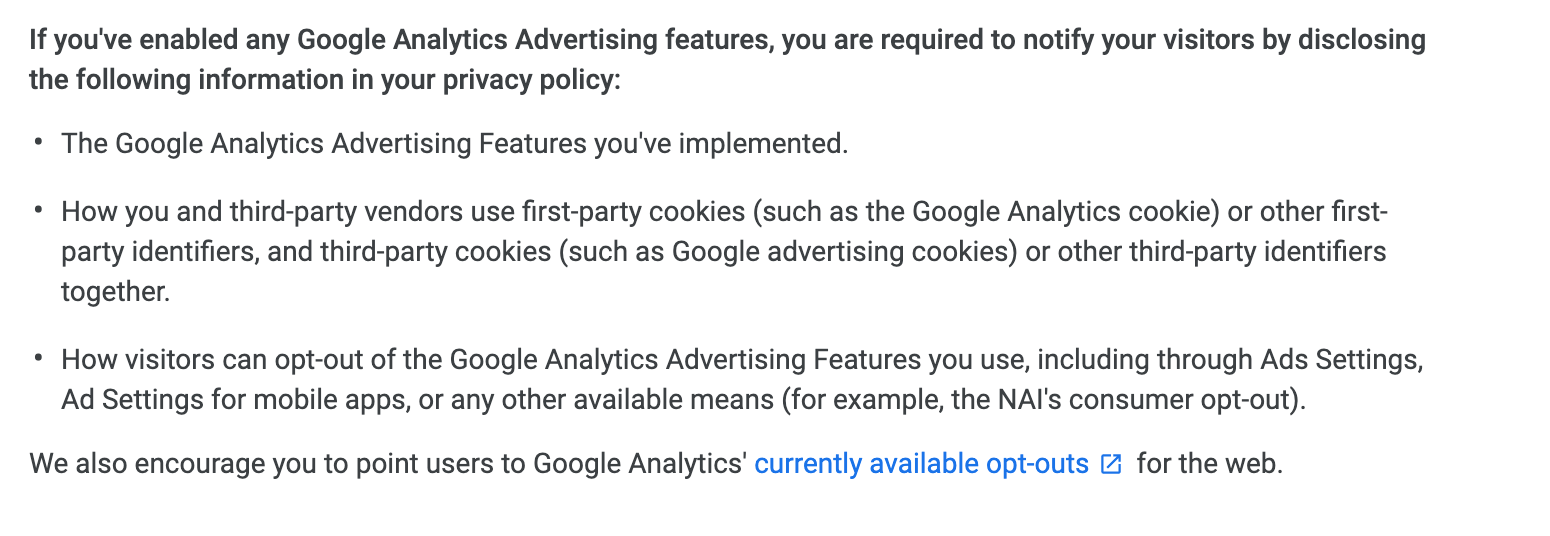The Data Protection Act (DPA) 2018 is the UK's updated data protection law which became effective on 25th May 2018 and was recently amended on the 1st January 2021 to reflect the United Kingdom's exit from the EU. It sits alongside the UK GDPR and replaces the Data Protection Act 1998. The United Kingdom is […]
Why do You Need a Privacy Policy for Google Analytics?
Why do you need a privacy policy if you use Google Analytics?
Google Analytics, a free website analysis tool from Google, tracks traffic on your website by placing a cookie on visitors browsers and thereby collecting information. As part of Google Analytics Terms and Conditions you are required to have a privacy policy and secondly, you have begun to collect personal information so you are now required by law to have a privacy policy in place.

On this page
What is Google Analytics?
Google Analytics is a free website analysis tool from Google. It is used to track the traffic to your website and help you to understand your users behaviour. Tracking is achieved by a cookie being placed on the browser of your users when they visit your website.
Google Analytics then provides you with data from each of your users visits. The data it gives you includes the amount of visitors you get to your website, which channels drive the traffic to your site, what pages are most popular, how long the average user stays on your site amongst many other useful statistics.
Google Analytics and Complying with Privacy Laws
As soon as your website begins to collect any personal data you are then required by law to have a privacy policy. As cookies collect this personal information and send that information to you, you are now required to have a compliant privacy policy.
Most international laws will require you to have the privacy policy in place and disclose your use of Google Analytics. These laws include General Data Protection Regulation (GDPR), California Online Privacy Act (CalOPPA), California Consumer Privacy Act (CCPA), and the Australian Privacy Act 1988.
Google Analytics Terms of Use
As part of the terms of use of Google Analytics you are agreeing to their terms and conditions. Clause 7, shown below, clearly states that you must have an appropriate privacy policy that complies with applicable laws relating to the collection of personal information from Users posted on your website.

How to Comply with Clause 7
By using Google Analytics your website is using cookies to track user information. You are therefore required to disclose, in your privacy policy that you use cookies. Your privacy policy needs to contain a cookie policy that includes the following information:
- the types of cookies you use
- the purpose of these cookies
- the option to opt out of cookie tracking

You can see that our Privacy Policy clearly states the use of Google Analytics and links users to an opt out option as well as Google Analytics Privacy Policy.
Google Analytics Advertising Features

Google Analytics Advertising Features groups together features which enable you to use the data which has been collected through the cookies in place for Google Analytics, to use for advertising.
These tools include remarketing (aka retargeting), Google Analytics demographics, Google Display Network Impression Reporting and Interest Reporting.
If you choose to make use of the Google Analytics Advertising Features then the following applies
If you use an SDK to implement any Google Analytics Advertising Features, such as Audience Reporting or Remarketing, you must comply with the Policy for Google Analytics Advertising Features, in addition to the Google Play Developer Program Policies, and any other applicable policy.
https://developers.google.com/analytics/devguides/collection/protocol/policy

https://support.google.com/analytics/answer/2700409
What this Means for Your Privacy Policy
By choosing to use Google Analytics and possibly the Google Analytics Advertising Features you need to ensure that you have a privacy policy that complies with Googles requirements. Let's recap what this means for your privacy policy:
- disclose your use of Google Analytics in your privacy policy
- have a cookies policy included in your privacy policy which describes what type of cookies you are using, what these cookies are used for and what third party cookies you use
- include the option to "opt out" of cookies tracking for your users
- ensure you are complying with the necessary international privacy laws, including GDPR, CalOPPA, CPPA, and Australian Privacy Act 1988
- include that you use advertising features if applicable
Disclaimer
The information in this article is for informational purposes only and should not be construed as legal advice on any matter and does not create a lawyer-client relationship
